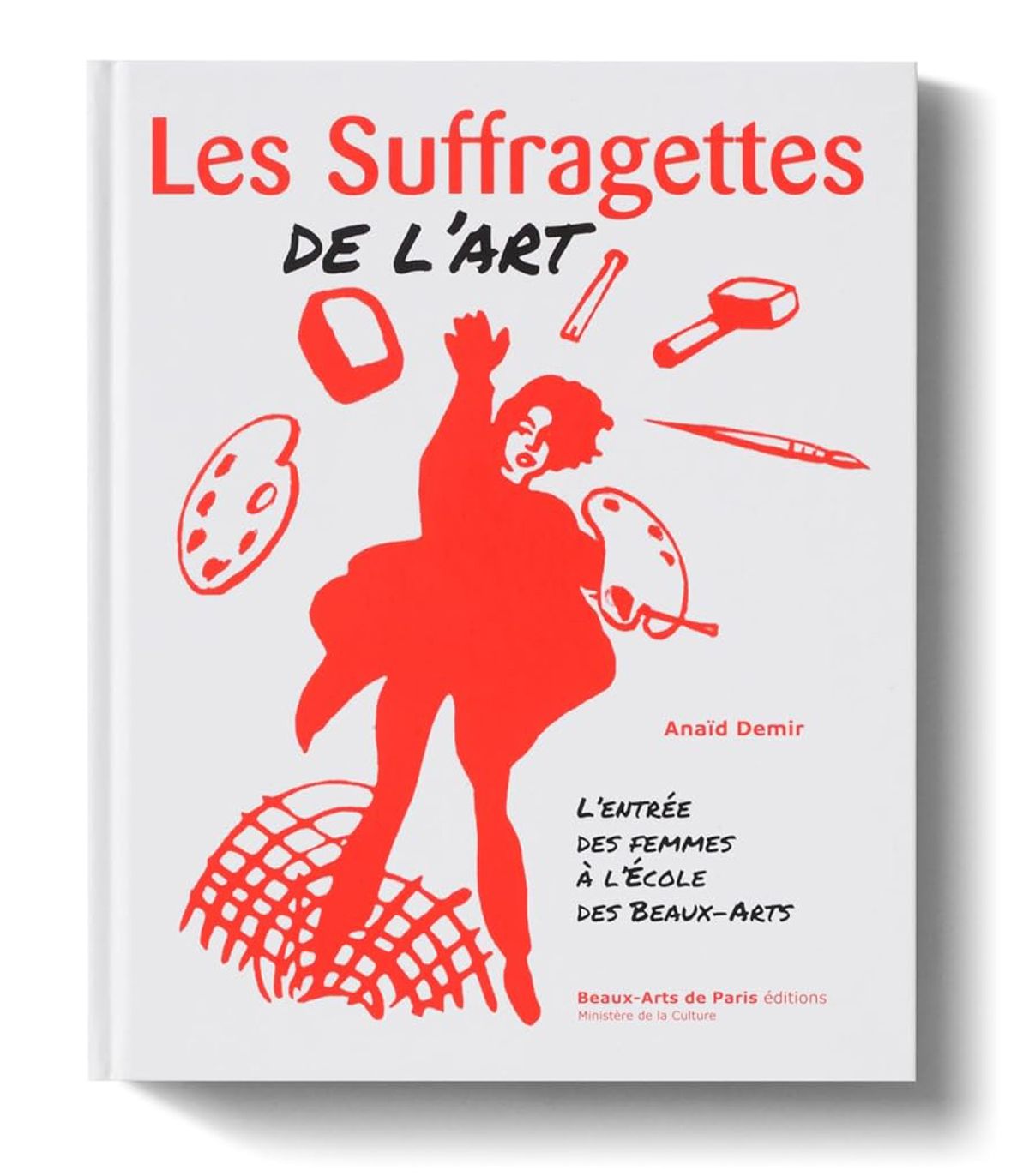The renowned French art academy the École Nationale Supérieure des Beaux-Arts (Ensba), in Paris, is at the centre of a censorship row following claims that a section about #MeToo sexual harassment claims were removed from a book about the history of women at the institution.
According to the French publication Le Quotidien de l’Art (8 March), 1,500 copies of the book Les Suffragettes de l’art. L’entrée des femmes a l’Ecole des Beaux-arts (The Suffragettes of Art. The Entrance of Women into l’Ecole des Beaux-arts) by the art critic Anaïd Demir were reprinted earlier this year. The new, second, version of the book is missing the sections “#MeToo years” and “A charter for gender equality”.
The book was published in January but around 1,100 of the 2,000 copies of this first version were later pulped. Demir tells The Art Newspaper that “the first version of the book was withdrawn from bookstores after two or three weeks and then destroyed. It was reprinted without the part concerning the last 25 years [of the history of Ensba], so without the last four pages”.
A passage about the former director of the school, Jean-Marc Bustamante, was in the original publication. The passage read: “The three years when he led Ensba (2015-18) were not easy for the future academician, whose sexist comments—made during an interview published in the catalogue of the exhibition Dionysiac at the Centre Pompidou, in 2005—resurfaced.”
Bustamante said in the 2005 catalogue: “Man needs to conquer territories, a woman finds her territory and she stays there; while women are looking for a man, a man wants all women.” Bustamante’s contract was not renewed in 2018 following allegations of sexual harassment made by students against some of the school's teachers.
In a lengthy statement published in Le Quotidien de l’Art, Bustamante says: “During my tenure as director… I promoted a woman to chair of the board of directors, a woman to deputy director, and a woman to director of studies.
“When the #MeToo debate broke out, I hosted a meeting with [the then] minister Françoise Nyssen in our premises, then I supervised, in close consultation with the Ministry of Culture, the implementation of new measures against sexual violence and for equality, which are still in force today. Despite this, attempts were made to destabilise me via a smear campaign, notably by taking out of context an interview with [the former Centre Pompidou chief curator] Christine Macel from 20 years ago, for which I have apologised many times since.”
Bustamante learned last December of the publication of the book and says he told the president of the school how “shocked” he was not to have been asked to contribute—other former directors are cited in the book—and claims there are inaccuracies. “A month ago, I was informed that the school had decided to reissue the work without the erroneous passages. I obviously never asked for it to be pulped,” Bustamante says.
Alexia Fabre, the director of Ensba, was contacted for comment but had not responded at the time of writing. She told Le Monde: “When the book came out, a lot of criticism emerged, particularly regarding two paragraphs in the last chapter. We therefore made the decision quickly, probably too quickly, to withdraw this chapter because we had neither the time nor the possibility to fairly report this moment in history.”
Joan Ayrton, the former director of studies at Ensba, tells Le Monde that “Bustamante now claims authorship of the [gender equality] charter in place, but at the time he considered #MeToo to be a mini-crisis that would pass.”
"Throughout my time as director [of Ensba]," Bustamante tells The Art Newspaper, "I have been very attentive, particularly due to this clumsy interview from 20 years ago. I could provide an overview (a bilan), but unfortunately, people often prefer opinions over reality." He adds: "Regarding Joan Ayrton, I can only contradict such an assertion."


